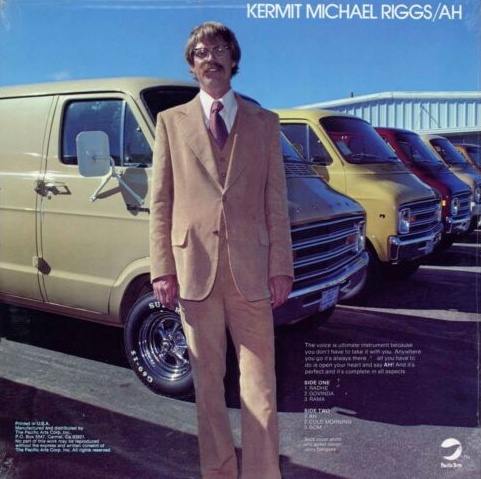Can We Have A New Sales Model Now?

I look after buying and selling a wide variety of cars for my customers. For one family I sold them a new 2022 Mercedes EQS, and am selling their 1917 Ford Model T! I help with relatively mundane machinery as well, and I am in and out of car dealerships on a weekly basis. I kind of have this morbid fascination with volume car dealerships, and look at them the same way I might look at a car crash. When I approach the front doors I take a deep breath and ask, "how bad is this going to be?" It is usually pretty bad.
My recent dealer visits have included Kia, Hyundai, Ford, Chrysler, Toyota and VW. I am trying not to be cruel here and realize that most people are just trying to make a living, but come on guys! Almost without exception, every piece of information that I have been given was wrong. The VW guy got mad at me for wanting an electric car when he didn't have one to sell. The Hyundai guy was wildly optimistic about the performance numbers and charge times. The Ford guy wildly pessimistic about delivery times. And so it went.
The guy at the Chrysler dealership deserves special mention. I asked if they had any idea when the all electric Jeeps might arrive. He said they had in fact arrived, and showed me photos of the one they had in stock. He said it was a 'game changer', and must have asked me 10 times to go out in the lot and take a look at it. Turned out it was a Hybrid. He maintained it was an all-electric BEV. I pointed out the combustion engine in it. He said the photographs hadn't been updated... Either he didn't know the difference between a PHEV and BEV, or he thought I wouldn't notice - not sure which is worse.
To be fair, the turnover is very high on the sales floor and many of these young guys are new to the industry - it isn't their fault that they haven't been trained. But the truth is that, for the vast majority of transactions, the car salesman adds no value whatsoever.
There is a widespread belief in the automobile industry that a salesman needs to be 'hungry' to sell cars. The management of many car dealerships believe they will get the most out of their salesmen if those employees are worried about making their next mortgage payment.This means the typical dealer will put many more salespeople on the floor than are necessary and make them compete against one another. The most aggressive personalities will sell the most cars as they will rush to greet the most customers - at the expense of the more polite who wind up leaving. The dealership doesn't sell any more cars in total - and probably sells less because so many people are turned off.
The problem with the 100% commission model is that it doesn't incentivize the employee to look after the customer's best interest. Also the job, with its variable pay and high pressure, doesn't appeal to the vast majority of the workforce who want stability and a cooperative work environment. That is why virtually no women work in sales at car dealerships.
The employees that most companies want are post-secondary educated with a stable family life and the obligations that go with it. These people, most of whom are parents, want a stable income and a good work-life balance - the exact opposite of what a car salesman job provides. What you mostly get with 100% commission is a revolving door of men with misplaced confidence, who are going to 'try' car sales with the hope of making some quick money. This generally isn't who you want to buy a car from.
Before consumers abandon car dealerships en masse and buy from start-ups with a direct-to-consumer sales model, legacy manufacturers and dealers need to re-think their sales model.
There are a lot of benefits to having a network of dealers with their service facilities and showrooms. Internet shopping is good to a point, but it is not possible to judge whether a seat is comfortable, or if the vehicle is easy to get in and out of or even what the colour looks like in real life. A dealer network provides a big strategic advantage over on-line only sales, but you have to staff it with people who know what they are talking about. In my opinion, divorcing product demonstration from sales would make the showroom a place where more people, particularly women, would feel comfortable visiting.
Manufacturers can help by not flooding the dealers with excess inventory, forcing them to drop their margins and sell by discounts and incentives which vary based on the negotiating skills of the purchaser. Having everybody pay the same amount (MSRP) gives the dealer a decent margin so they don't have to resort to desperate tactics to make money, and paying the same as everybody else gives the consumer confidence that they are not being ripped off.
A sales floor with 10 hungry salespeople can be replaced with 5 product specialists and one admin person. Huge storage lots piled with inventory could be eliminated; the land sold and the carrying costs mostly eliminated. We have seen the profitability of car dealerships rise dramatically in the last few years, despite selling fewer cars, because the dealers are getting full margin (and then some) for their cars and not carrying any inventory.
With little inventory to pay for and healthy margins, dealers can offer good jobs and a budget for training longer term staff. Without the cutthroat competition on the sales floor, and a stable income, better quality applicants would come forward. Customers would benefit.
I'd like to see a model where customers can be free to go to a showroom and learn whatever they need to about the cars from knowledgable product specialists without the customary anxiety. It is important that the customer not feel like they are being judged, nor feel that because they came in to ask a few questions that they are somehow obliged to do anything.
When the time comes to buy the car, I would like to see the customer set up an appointment with a Sales Administrator, whose time is booked like other professionals. The Sales Administrator would handle all the paperwork, financing or leasing, trades, and any extra warranties, service plans, winter equipment etc. This should all be directed by one competent person and take less than an hour.
What we have now is for the most part ridiculous. The sales people don't know anything, and need to go to a manager for everything. The customer is shepherded from desk to desk while the price of the car keeps changing. There is always a mistake somewhere, and it is never in the customer's favour. It is a painful, grossly inefficient process that just about everybody hates.
Apple came along and revolutionized consumer electronic sales with 'product geniuses' instead of commission sales people. Tesla took a page from the Apple showrooms and will sell something like 1.3M cars direct to consumers this year. EV startups including Rivian, Lucid, Vinfast and Polestar have adopted this model. Volvo has now says it is giving customers the choice of a dealership experience or shopping on-line. The writing is on the wall.
For the dealers who want to stay relevant, I think they need to give their sales processes a hard look from the customer perspective. Most are failing miserably right now.

Lawrence Romanosky, Calgary, Canada
Lromanosky@me.com, 403-607-8625
Comments ()